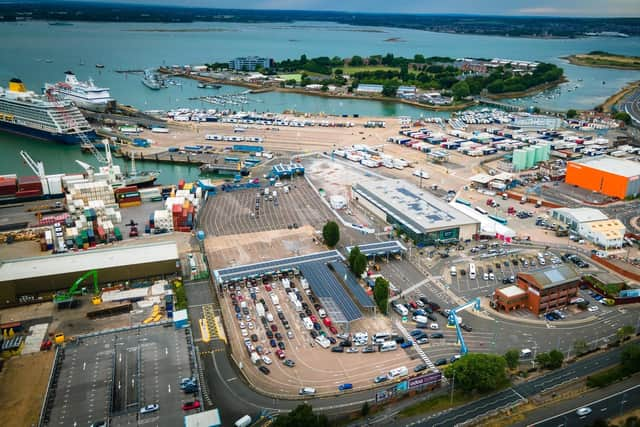Border Control Post's checks at Portsmouth International Port could cost taxpayers an extra £2.5million a year
and live on Freeview channel 276
During a recent Portsmouth City Council meeting, cabinet members discussed the challenges of funding the Portsmouth Port Health Authority (PPHA) in the new Border Control Post (BCP) as requested by the central government. The new PPHA would check imported goods arriving at Portsmouth International Port (PIP) for diseases and contaminants as part of a new biosecurity system in the wake of Brexit.
The BCP has remained vacant since it was built in 2021 and it’s been criticised as a £22m “white elephant,” with the council covering almost £6m of the cost. Council officers have recommended recruiting and preparing for the new PPHA which could cost the council between £2.4 and £2.7m a year.
Advertisement
Hide AdAdvertisement
Hide Ad

Gerald Vernon Jackson, cabinet lead for transport, said the report is one of the most “worrying” and “serious” he has “ever seen coming into this council in the last 20 years”. He added that Portsmouth residents have been “short-changed” by the government’s decision to build the “white elephant” BCP and now “it’s getting even worse”. “Either we have to say that we as taxpayers are going to have to pick up an extra £2.5m a year – which is a very bad option or we go for something worse.
“It might be that we decide with the pressure of local government finance as it is that we cannot afford that extra £2.5m a year.”
The central government requested the council to start recruiting and preparing the new BCP in early October, with funding available until July next year. Richard Lee, assistant director of culture, leisure and regulatory services said it’s a “very difficult equation” in terms of acquiring the required staff in a short period of time. He added that, with the funding drying up in July, the Portsmouth taxpayer will be “at risk because funding any official control regime through any port is highly unlikely to deliver a full cost recovery, cost neutral position.”